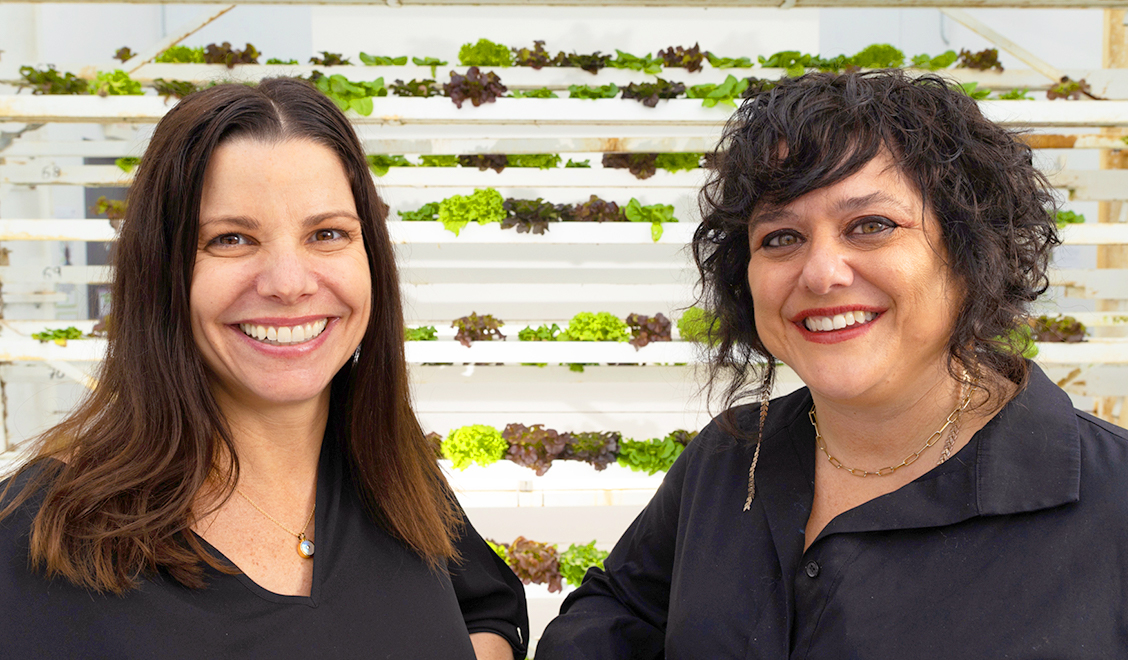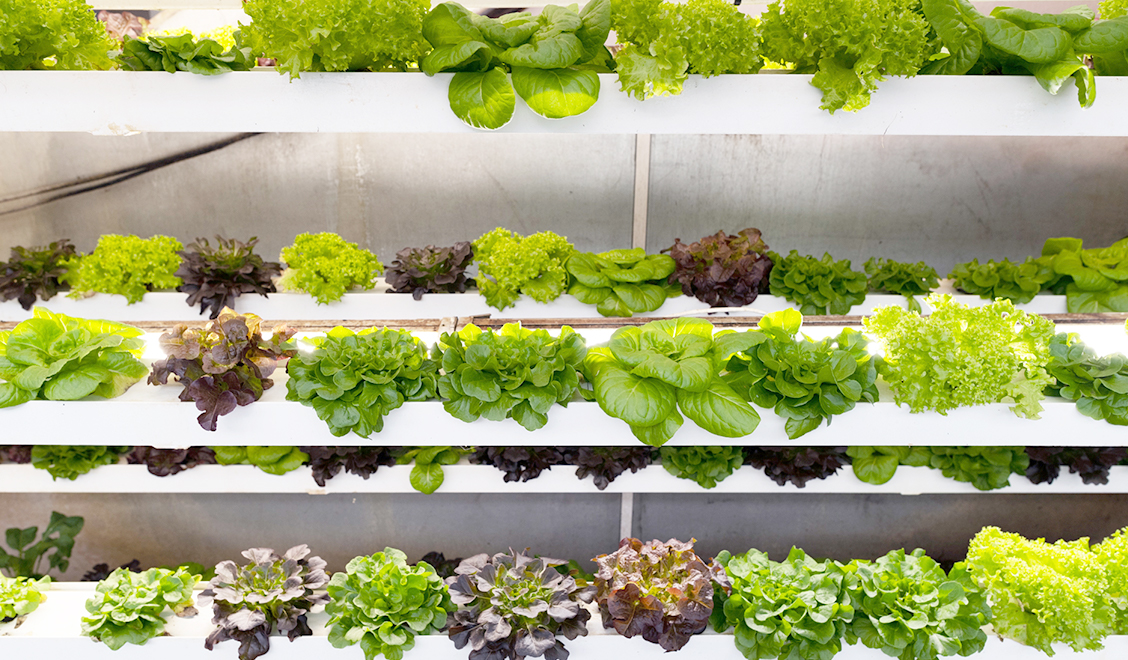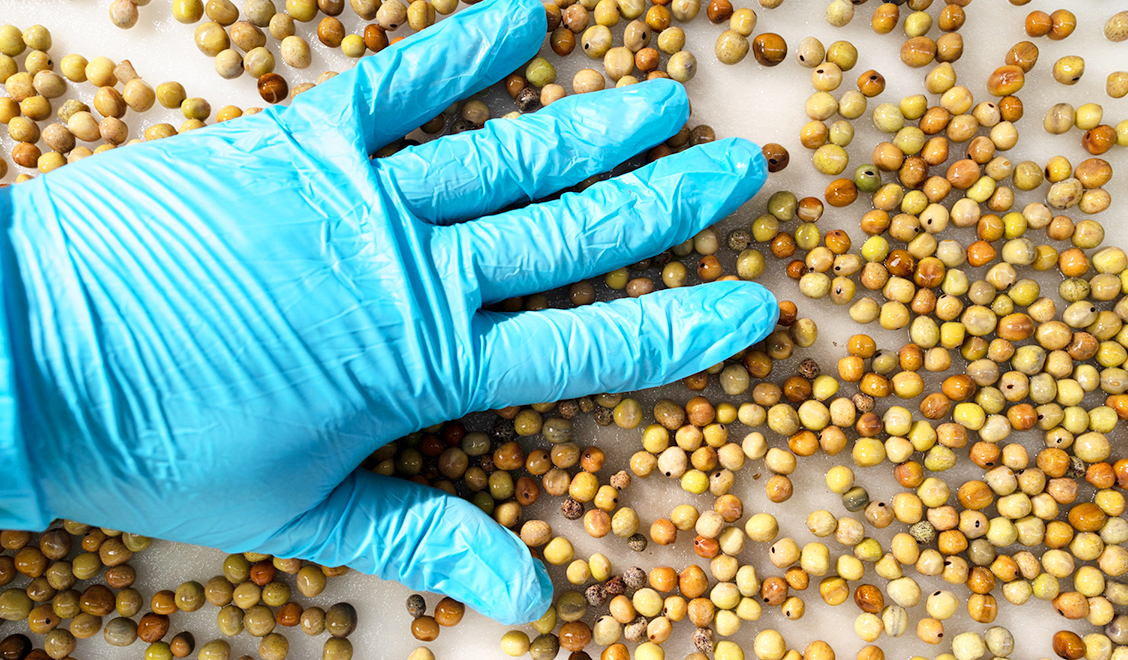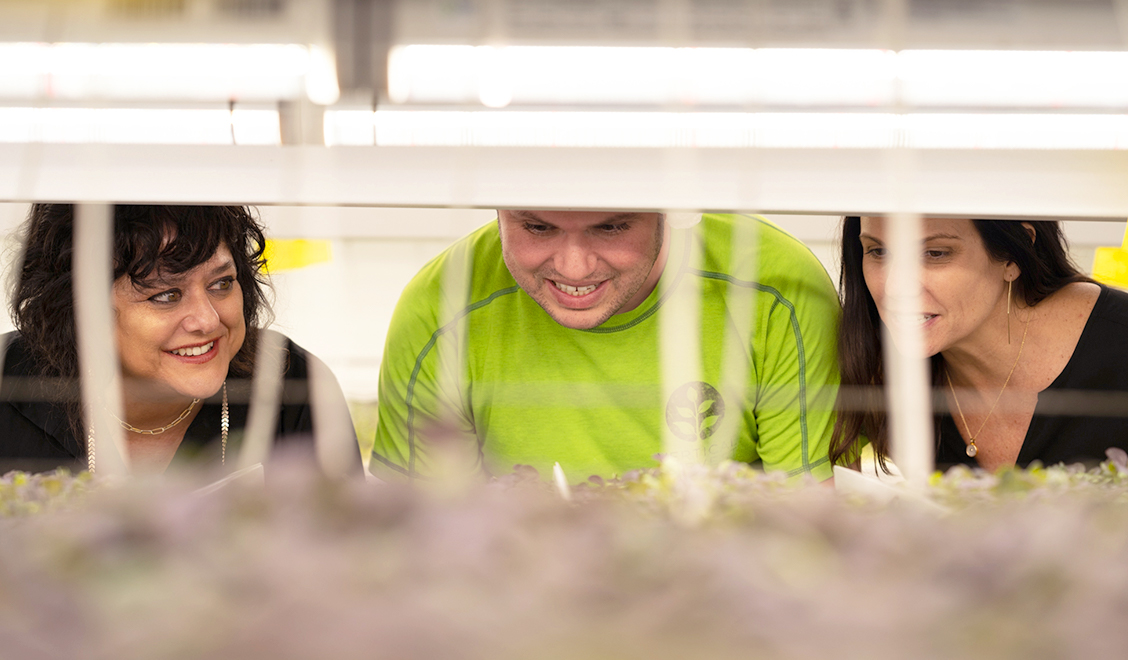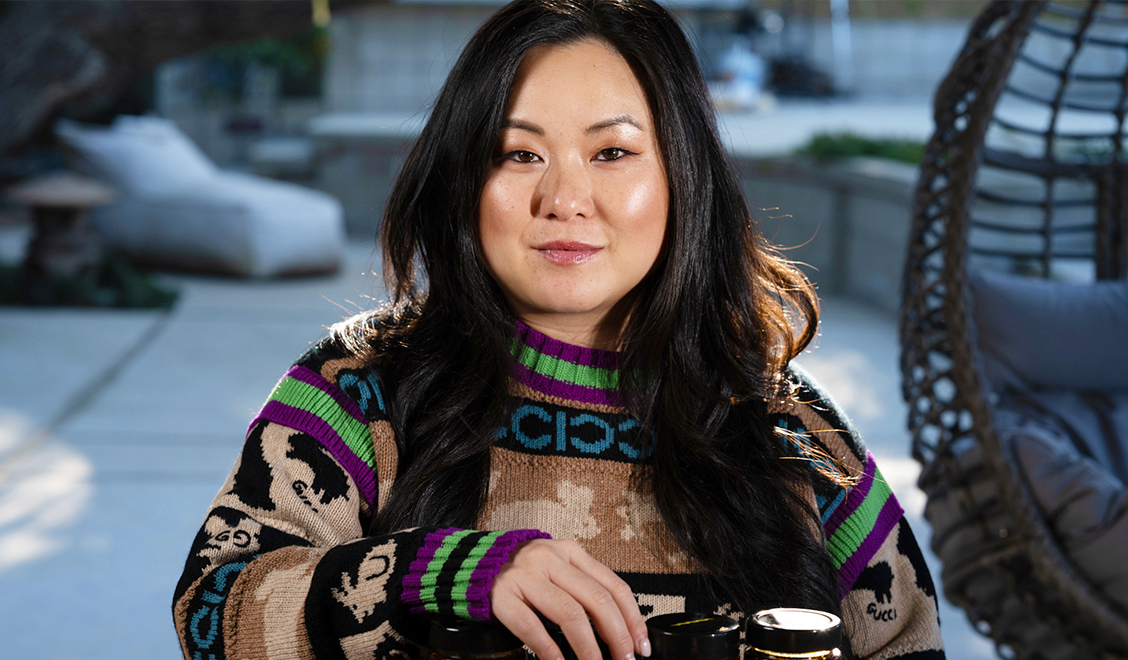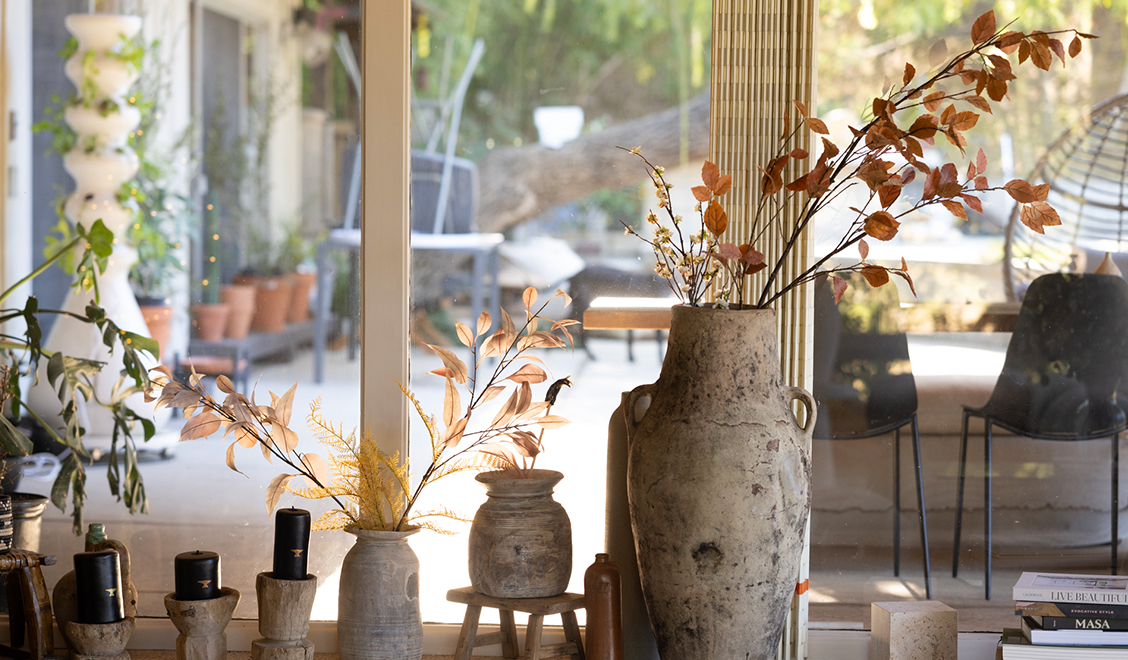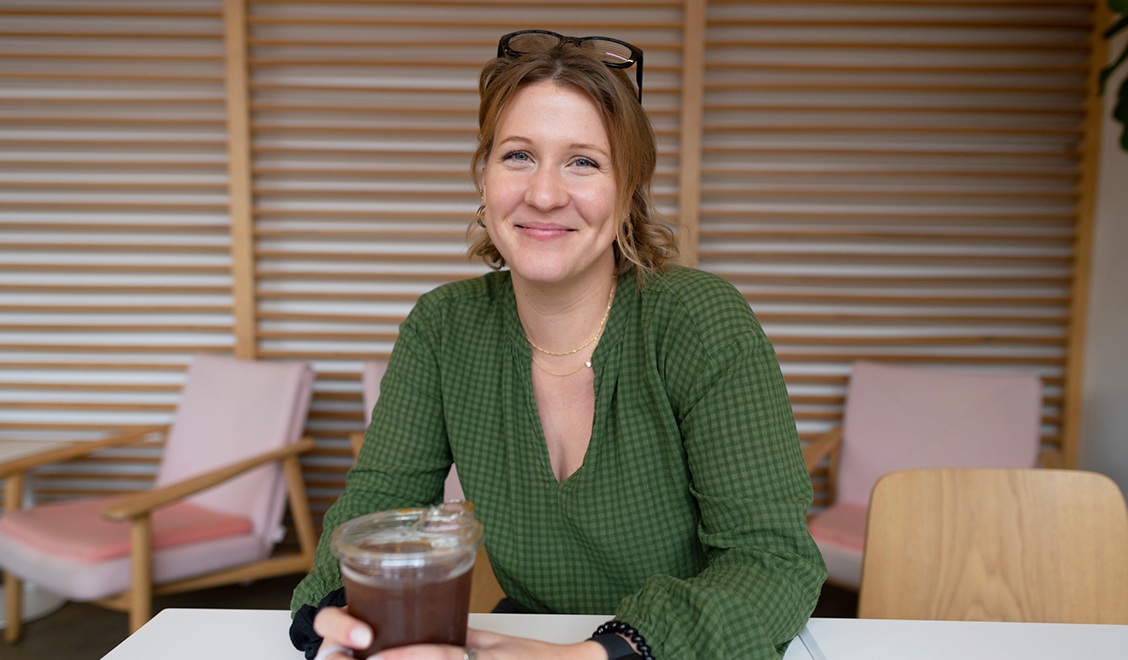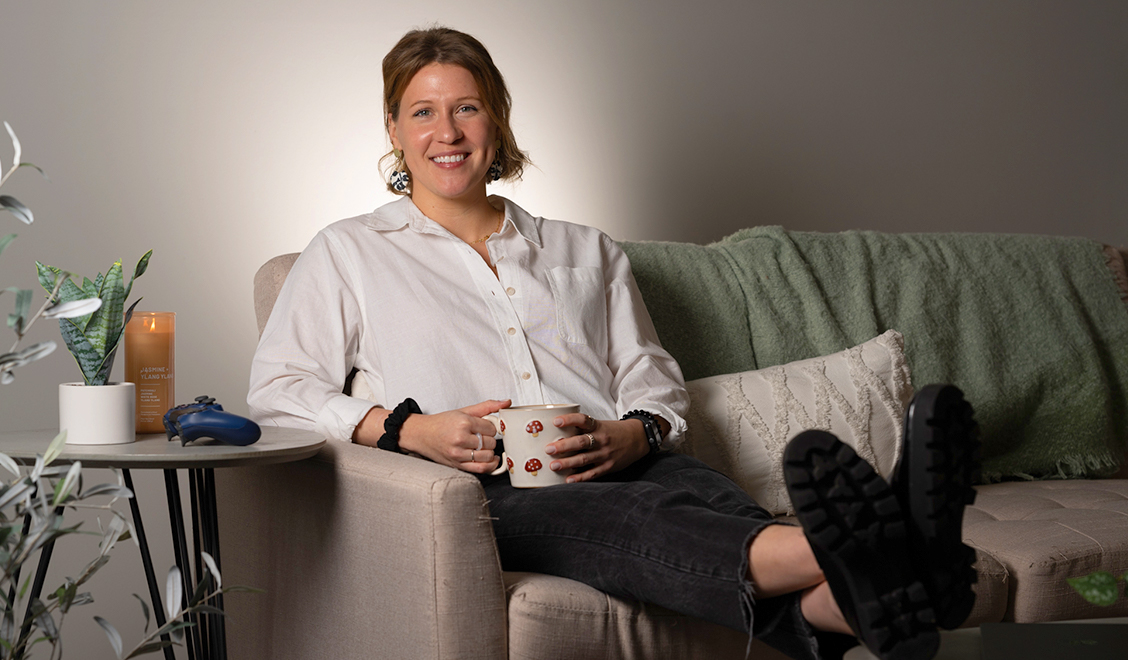Get To Know the Food-Industry Trailblazers Who Are Evolving How We Nourish Ourselves—And Our Planet
These four forward-thinking women are putting equity and representation at the forefront of what’s to come in food and nutrition.
The future of wellness starts with food. And when we talk about food, we aren’t just speaking about sustenance or survival. Food is fuel, of course, but it’s also deeply personal. Our culinary habits are rooted in tradition, enrichment, connection, and—in every sense of the word—evolution.
When we look to 2023, several individuals—named our Well+Good 2023 Changemakers—will be at the forefront of the food industry's next wave of reform and representation. From how we flavor our dishes to the way we grow our food to how we take care of the very workers that feed us for a living, it’s a time of tremendous change—and these community, culinary, and climate-minded trailblazers are leading the way.
Let’s start macro: In order to feed the planet’s projected population of 10 billion people in 2050 (over 2.1 billion more than our current population), change isn’t just welcome, it’s required. That’s where Changemakers Nona Yehia and Caroline Croft Estay come in. These two founded Vertical Harvest in 2016 with the intention of growing food using a more sustainable and community-driven farming method: vertical and hydroponic controlled environmental agriculture (CEA). By developing a network of vertical farms on underutilized spaces in urban, underserved neighborhoods, Yehia and Croft Estay are bringing food production local, creating jobs, and ensuring that communities have a stable supply of fresh non-weather-dependent food (all while using a fraction of the land and water required by traditional agriculture).
“Food will be the defining issue of the 21st century,” says Yehia. “Our global food system is under increasing strain; people are realizing that we need to make a change, and fast. In this next era of food and climate wellness, consumers are looking for brands and businesses that are not only informed, but are also purpose-driven and have values that align with their own—and as a result, we have a real opportunity for food to be the medium for the change we want to see in the world. This requires us, as individuals and businesses, to think outside of ourselves; to put the ‘we’ alongside the ‘me.’”
When it comes to pushing for progress in business, few are raising the bar in the food industry higher (or hotter) than the chef, entrepreneur, renowned expert in Chinese cuisine, and Well+Good Changemaker Jing Gao. Gao is the founder and CEO of Fly By Jing, a food company named for the meaningful flavors of her hometown of Chengdu, China, and its famous fly restaurants—“soulful hole-in-the-wall eateries so good they attract diners like flies.”
Gao developed Fly By Jing’s delicious line—which includes products like soup dumplings, serving tools, and the renowned Sichuan Chili Crisp—with the mission of sparking more meaningful conversations around food culture and culinary tradition. And for her, that means pushing for innovation and education. “Through Fly By Jing, we aim to evolve culture through taste, and elevate consciousness by expanding palates and minds,” Gao says. “I am constantly asking myself how I can bring my unique expression to the conversation to help it move forward.”
But true evolution in food and wellness, says Gao, cannot happen without greater representation. “I’m looking forward to seeing more diverse voices enter the conversation about wellness and the food industry. Much of the wellness philosophies we speak about today have been co-opted from ancient Eastern wisdom, often with little credit or appreciation. Representation goes a long way. Wellness needs to become accessible, be more easily understood, and have lower barriers to entry,” Gao says.
The toxic-leaning restaurant industry is yet another aspect of our nation’s food system in dire need of more equitable standards—and Well+Good Changemaker Julie D’Amico, LCMHCA, is helping to spearhead the cause. D’Amico is a psychotherapist and the director of mental health operations at Restaurant After Hours, a 501(c)(3) nonprofit dedicated to providing help and resources for individuals and organizations in the hospitality industry seeking mental health support. “With Restaurant After Hours’s platform, I strive to be a part of creating a cultural shift that prioritizes mental health and the well-being of those working in the hospitality industry, which is traditionally not open to these conversations,” says D’Amico.
Her end game? Change at the systemic level: Think higher wages, health insurance, and better working conditions. “As the topic of advancement in mental health support becomes more mainstream, it becomes a more safe situation for struggling hospitality workers to ask for help or resources from their employer. I look forward to a future cultural shift that promotes equitable wellness for all,” D’Amico says.
Each one of these Well+Good Changemakers is paving the way for critical innovation and equity in food; they’re working to transform meals, working conditions, and agricultural systems within their own communities and beyond. Take it from Gao: “As the saying goes, the future is here, it’s just not evenly distributed. We need advancements in wellness and food to be more evenly distributed for more people to be well.”
—By Betty Gold, Well+Good Senior Food Editor
Caroline Croft Estay and Nona Yehia
Co-founders at Vertical Harvest
Nona Yehia and Caroline Croft Estay are helping change the way we approach sustainable farming. The architect and behavior health expert (respectively) co-founded Vertical Harvest, North America’s first vertical hydroponic greenhouse, located in Jackson Hole, Wyoming.
“[We need to start] working together, and bringing community into the conversation of wellness. Food is a universal place to start [doing that], by providing healthy, nutritious food and educating people on the benefits of fueling your body and mind and their ability to do so. Hippocrates said it well: ‘Let food be thy medicine.’”
—Caroline Croft Estay
Yehia, Vertical Harvest’s CEO, designed and built Vertical Harvest’s structure, which yields over 100,000 pounds of produce each year, providing a solution to unsustainable farming practices. In 2023, Vertical Harvest is launching its second greenhouse in Westbrook, Maine. The four-story, 70,000-square-foot structure is projected to produce 2 million pounds of fresh produce annually. Yehia, who has more than 25 years of experience in architecture and currently works as a principal architect for the award-winning GYDE Architects Firm, earned a bachelor’s degree from the University of Michigan before completing her master’s degree from the Columbia University Graduate School of Architecture, Planning and Preservation.
Vertical Harvest chief potential officer Caroline Croft Estay earned a bachelor’s degree in psychology from the University of South Carolina and has worked in Medicaid case management for over 20 years, providing necessary support and direction for recipients. Estay has used her years of experience in case management to guide her vision for Vertical Harvest’s employment practices. Estay crafted and implemented Vertical Harvest’s “Grow Well” employment model, a three-pronged approach to employee development and engagement that fosters professional development, personal discovery, and community impact. Her dedication to providing an inclusive workplace at Vertical Harvest is reflected in the diversity of the company’s staff, about 40 percent of whom are people with disabilities.
What are you most looking forward to in the future when it comes to change in wellness and food industries?
“Food will be the defining issue of the 21st century. Our global food system is under increasing strain, and people are realizing that we need to make a change, and fast. We have an opportunity for food to be the medium for the change we want to see in the world.” —Nona Yehia
Jing Gao
Founder and CEO of Fly By Jing
Jing Gao is a chef and founder and CEO of Fly By Jing, a food company founded in 2018 that focuses on sauces, spices, soup dumplings, and serving tools. Gao named her business Fly By Jing as an homage to the meaningful flavors of her hometown of Chengdu, China, and its famous “fly” restaurants—“soulful hole-in-the-wall eateries so good they attract diners like flies,” she says. Though Gao was born in Chengdu, she “grew up everywhere,” which galvanized her to use her professional culinary skills and rich cultural heritage as a means of thought leadership and storytelling through food.
Today, Gao aims to bring Chinese flavors to every table, and leverages Fly By Jing’s flavor-packed products as a way to spark meaningful conversations around food culture, community, innovation, and representation. She says her sauces—like Fly By Jing’s celebrated Sichuan Chili Crisp, which is the inspiration for her upcoming cookbook, The Book of Sichuan Chili Crisp—are “not traditional, but personal.”
Gao was formerly the founder of an award-winning modern-Chinese fast casual restaurant in Shanghai and her work has been featured in The New York Times, BBC, CNN, Wall Street Journal, Fast Company, Fortune, and more.
What are you most looking forward to in the future when it comes to change in wellness and the food industry?
“I’m looking forward to seeing more diverse voices enter the conversation about wellness and the food industry. Much of the wellness philosophies we speak about today have been co-opted from ancient Eastern wisdom, often with little credit or appreciation. I think representation goes a long way.” —Jing Gao
Julie D’Amico, MA, EdM, LCMHCA
Director of Mental Health Operations at Restaurant After Hours
Mental-health advocate and licensed counselor Julie D’Amico is the director of mental health operations and a consultant at Restaurant After Hours, a 501(c)(3) organization founded in 2018 that offers mental health support for hospitality industry workers throughout the United States. She is currently based out of Raleigh, North Carolina, where she also has a clinical psychology practice. She holds a dual master’s degree from Columbia University in psychological counseling and mental-health counseling, with a special concentration in bilingual Latinx/e mental health. She is passionate about providing safe healing spaces for folks with diverse racial and cultural backgrounds, religions, body sizes, and abilities; members of the LGBTQ+ community; and people who are neurodiverse.
D’Amico collaborates with major organizations and restaurants in an effort to destigmatize mental-health conversations in the hospitality industry. She creates psychoeducational content to open up conversations about mental health in the workplace and provides free and accessible peer-led support groups and community connection services for hospitality workers. D’Amico’s aims to instigate a cultural shift that prioritizes mental health and well-being in the hospitality industry, which has been long neglected.
In 2022, D’Amico, along with the Restaurant After Hours, was featured in various publications and participated in online and in-person events. As a testament to the organization’s efforts, the company received a grant from the Restaurant Workers’ Community Foundation in December.
What are you most looking forward to in the future when it comes to change in the health and wellness industries?
“I look forward to when mental health is talked about as openly and freely as any other topic, so that those who struggle know they are not alone and know how to seek help.” —Julie D’Amico

